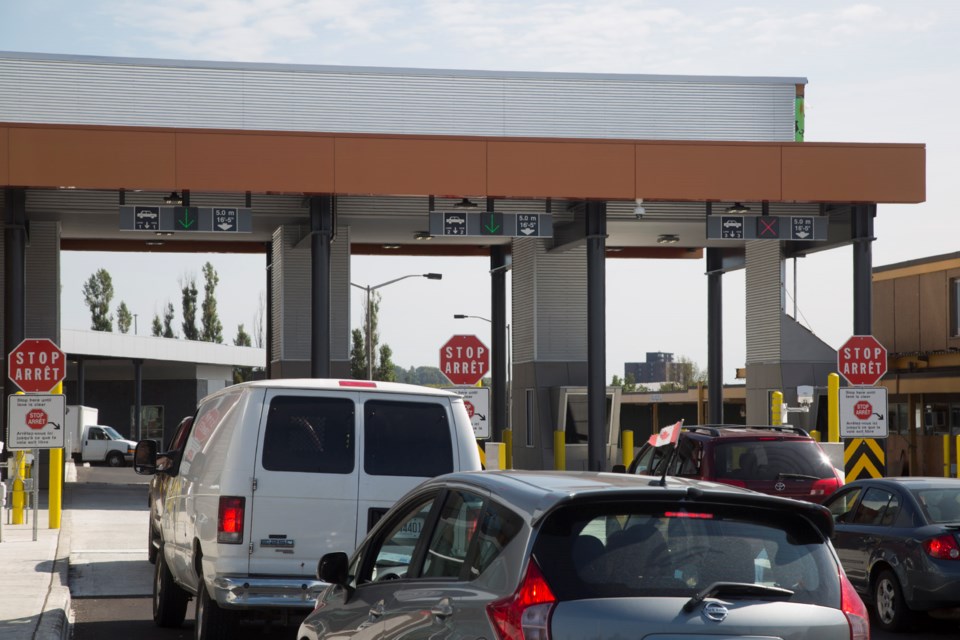It should come as no surprise given the COVID-19 travel restrictions and stay-at-home orders in Ontario that traffic at the Sault Ste. Marie International Bridge is down 87.2 per cent from the same time last year.
11,886 vehicles crossed in the month of January 2021, a difference of 80,923 crossings as compared to January 2020.
Majority of the crossings were commercial trucks (6,617) and regular commuters (4,392). Full-fare passenger cars made up 763 crossings and car pulling trailers made up the remaining 114 crossings.
The government of Canada imposed COVID-19 international travel restrictions back in March and has since extended the order until at least Feb. 21, 2021.
Algoma Public Health has also issued a special travel advisory for Algoma residents who regularly cross the Canada-U.S. border for work.
Even if you are exempt from federal travel and quarantine restrictions, APH advises you to:
- Avoid cross-border travel and use virtual options if possible
- While in Chippewa County, protect yourself by avoiding crowded indoor spaces and staying two metres apart from other people at all times
- Once back in Algoma, protect others by staying home as much as possible for 14 days and not having close contact with others, especially vulnerable people who are elderly or have underlying health conditions
This advisory was initially issued on Nov. 4, and is now in effect for 28 days until at least Feb. 24, 2021.
To date, 169 cases have been confirmed in the Algoma region. Currently, there are 21 active cases in Algoma residents. Two people have died from COVID-19 in the area and 148 cases have been resolved.
In Sault Ste. Marie, Mi., the Chippewa County Health Department has confirmed 1710 cumulative positive cases, 1500 of which are recovered. The health unit has reported 23 deaths to date, and three people are currently hospitalized with the virus.
Earlier this week, Prime Minister Justin Trudeau announced mandatory COVID-19 screening for non-essential travellers will apply at the Canada-U.S. land borders, even though non-essential travel is currently prohibited.
Trudeau said non-essential travellers will have to show a negative test at the land border with the U.S. Details are expected in the coming weeks.
In response, Premier Doug Ford announced the province would be implementing stricter mandatory testing for those coming into Ontario from outside the province.
The mandatory testing order came into effect for international travellers on Monday at noon at Toronto's Pearson International Airport, and will soon apply to land border crossings between provinces and the U.S. in Ontario. Those who refuse, Health Minister Christine Elliott says, will be issued a ticket. The ticket starts at $750.
Right now, Elliott said the airport testing applies primarily to international travellers coming through Pearson, and that the government is still working out how the testing process will work for essential workers who have to cross land borders between provinces or between Canada and the U.S. on a regular basis.
